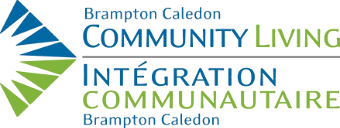On November 22, 2018, the PC government announced reforms to social assistance in Ontario. Following a 100-day review of Ontario Works (“OW”) and the Ontario Disability Support Program (“ODSP”), Minister Lisa MacLeod criticized the current system, stating that it created a “cycle of dependence” and proposed a complete over-haul of the system and its administration.
While the government spends $10 billion on social assistance annually for 1 million people, the Minister claimed that one in seven remain in poverty. In addition, half of the people on OW who successfully transition into the workforce end up coming back into the system. The Minister emphasized the need for a “wrap-around” approach that would empower individuals, rather than “police” them. For persons with disabilities, the Minister underscored simplifying programs, reducing red tape and allowing for greater flexibility.
While details are sparse, here is what we know about the PC plan to improve social assistance:
Definition of Disability for ODSP: The government intends to align the definition of disability with the federal standard, while those already on ODSP would be grandfathered into the system.
ODSP Eligibility: Financial eligibility for ODSP will be reviewed annually, rather than monthly.
ODSP Earning Exemption: Those on ODSP will receive a flat $6,000 annual exemption, without reducing their assistance. Twenty-five percent of earnings above $6,000 would be exempt. This is $1,200 more per year than the Liberals provided for earlier this year.
OW Earning Exemption: Recipients of OW will be able to earn up to $300 per month, without reducing their assistance (up from $200). Twenty-five percent of subsequent earnings would be exempt. Exemptions would start after one month on assistance, rather than after the usual three-month waiting period.
LIFT Credit: The Low-Income Individuals and Families Tax Credit (“LIFT”) will allow individuals earning nearly $30,000 per year to keep an extra $850 annually.
Multi-ministerial Approach: Minister MacLeod was joined by the Minister of Training, Colleges and Universities during the announcement and highlighted the need for greater coordination among ministries.
Locally Focused Services: Municipal partners will be empowered to deliver services locally, including the creation of a local OW discretionary fund. The government has also tabled legislation on November 21, 2018 establishing a “Social Assistance Research Commission,” an advisory group appointed by the Lieutenant Governor that will recommend ODSP and OW rates for each region in Ontario based on economic geography and the cost of living.
Website: A new website has been launched to better match job seekers to employers (Ontario.ca/openforbusiness).

